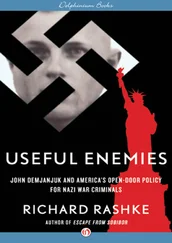It became evident that ‘Kenneth Milton’ frequently received packets from Paris. These enclosed copies of French ambassadorial dispatches from various capitals, confidential news on French politics and finance, unsigned typed letters accompanying English plain-language codes, and occasional letters from Indian revolutionaries to comrades living in England. The material justified Vansittart’s quip: ‘in France official secrets are everybody’s secret’. Codewords in the letters were often food-related. ‘Spaghetti’ indicated an agent inside the Quai d’Orsay, paid 5,000 francs a month, who supplied product on Italy. ‘Goulash’ was an agent supplying material on the Balkans. ‘Native grown cereals’ meant an informant from within French political circles. ‘Hospitality’ or ‘footmen’ indicated occasional informants. ‘Bristol’ was the codeword for Warsaw. ‘Glasgow’ indicated Moscow or Russia. ‘Leicester’ meant Paris. Halifax, Cheltenham, Nottingham, Exeter, Hereford and Gloucester were other towns with coded meanings. 26
Then, on 8 May 1925, Ewer’s inadvertence exposed his Paris sub-agent. He published an article on French Morocco in the Daily Herald , under George Slocombe’s byline, which was barely distinguishable from a note to ‘Milton’ intercepted two days earlier. The Home Office issued postal warrants for Slocombe’s private and business addresses. They found that Ewer sent him about £210 a month, of which one-third was spent on bribes to obtain copies of secret documents from the Quai d’Orsay or embassies in Paris. The trusting fealty between Ewer and Slocombe was helped by juvenile matiness. They disdained upper-case typing in their unsigned missives, in which the keynotes were bluff irreverence and Jew-baiting.
In November 1925 Slocombe became infuriated by the Bolshevik – whom he codenamed ‘flivverman’ – who had arrived in Paris to run him. ‘He’s a thin-lipped hebrew who despises politics of which d’ailleurs [anyway] he’s supremely ignorant and is interested only in originals of whatever value,’ Slocombe told Ewer. Flivverman had conveyed Moscow’s dissatisfaction that Ewer’s network seldom obtained original diplomatic documents. ‘He despises the London food service as too costly thinks you are all a lot of reckless spendthrifts is sceptical of your efficiency, and is generally jewish, but without the hebrew wit.’ Ewer replied on 20 November that he had seen ‘the chauffeur’ (his controller at Chesham House): ‘He’s damned angry with the yiddisher brat whom I think he does not love.’ Slocombe added a covering note with the batch sent on 26 November: ‘Yid improves slightly on acquaintance but … entirely preoccupied with first editions regardless of value. hope however to train him. our personal relations cordial enough. inferiority complex characteristic of his race responsible i think for his preliminary rudeness.’ 27
Moscow sent almost £1.25 million to fund the miners’ strike of 1926, which developed into the General Strike. The consequent industrial disruption and civil strife, ample proof of Soviet-inspired subversion within the British Empire and Moscow’s support of Chinese communist revolutionaries against British control in Shanghai determined the Conservative government to break off diplomatic relations with Moscow. In January 1927 an ARCOS employee named Edward Langston informed Herbert (‘Bertie’) Maw of SIS that he had been instructed to photocopy a secret Signals Training manual obtained from Aldershot barracks. This information was passed to MI5, where Kell and Harker spent weeks checking its authenticity, interviewing the informant and consulting an ARCOS accountant who was a reliable SIS source in ARCOS. The Home Secretary, Sir William Joynson-Hicks, was an impulsive populist well described by his parliamentary colleague Cuthbert Headlam as ‘a miserable creature – a shop-walker attempting to pose as a strong man’. When the situation was explained to him (as the result of an intervention of the Secretary of State for War, Sir Laming Worthington-Evans), Joynson-Hicks initiated a raid on the ARCOS offices, with the intention of finding evidence for a prosecution under the Official Secrets Act. 28
Compton Mackenzie, who had worked for SIS in Greece during the war and wrote an insultingly farcical novel Water on the Brain (1933) about Sir Mansfield Cumming’s regime, commented on the ARCOS raid: ‘anti-Russian propaganda was being worked up solely with the object of persuading the country not to vote for the Labour Party at the next election; but the Russian government, less aware than ourselves of the unscrupulousness concealed by the pleasant masks of party politics in Great Britain, might be forgiven for supposing that the mind of the country was being prepared for a declaration of war against the U.S.S.R.’. Mackenzie exaggerated by using the word ‘solely’, but his phrases expressed a widespread and justified suspicion of the motives of Joynson-Hicks, Worthington-Evans and other ministers in Baldwin’s Cabinet. 29
Ginhoven and Jane were unable to warn the FPA of the impending raid, because Special Branch received misdirection, when they were deployed, that the target of the swoop was contraband in the London docks. The raid, on 12 May 1927, was hastily prepared and ill-executed. Desmond Morton was one of the SIS officers who participated in the descent on 49 Moorgate: his biographer Gill Bennett depicts uniformed City of London constables, Special Branch men and SIS officers hurtling around in strenuous, uncoordinated activity. One squirted ink on to a portrait of Lenin’s face hanging on the office wall. No one took charge; almost no one knew the extent of their legal powers to seize materials or detain individuals; few searchers knew what documents to seek. The seized items proved ‘inconclusive and confusing’, once they had been translated, Bennett reports. The stolen Signals Training manual, which it was the primary object of the raid to retrieve, was not found. 30
‘An immense quantity of police descended on the place, searched the inmates, impounded documents, and for 48 hours have been occupied in smashing up concrete walls in order to break open concealed safes,’ noted Lord Crawford. ‘Secret hiding-places existed all over the building – behind panelling, under floors, in thicknesses of walls; and the place has been throbbing with pneumatic road-breakers, and with expert safe-breakers working acetylene gases.’ The rupture of diplomatic relations with Russia, which was the sequel to the raid, made the ‘Clear out the Reds’ section of the Conservative party rejoice. ‘At last we have got rid of the Bolsheviks,’ a Cabinet minister Lord Birkenhead rejoiced. ‘We have got rid of the hypocrisy of pretending to have friendly relations with this Jewish gang of murderers, revolutionaries and thieves. I breathe quite differently now that we have purged our capital of these unclean and treacherous elements.’ Birkenhead’s cooler-headed colleague Neville Chamberlain considered the raid ‘farcical’. 31
The raid was a blunder, which breached with disastrous results the intelligence principle of watch and learn. Having failed to find any clinching proof of espionage, subversion or schemes of sabotage, the government, which was set on severing diplomatic relations with the Soviet Union, had to justify its decision by producing, instead of the incriminating documents expected from the ARCOS raid, communications between the Soviet Mission at Chesham House and Moscow, which had been secretly intercepted by GC&CS. This proved to be a grievous error. As Gill Bennett has summarized the position, ‘The production in Parliament and publication of these documents for all to see in a Command Paper, revealed their source beyond question, leading to the immediate abandonment by the Soviet Foreign Ministry of its methods of encipherment in favour of unbreakable one-time pad systems for its communications; thereafter no high-grade Soviet diplomatic messages could be read by the British authorities.’
Читать дальше












